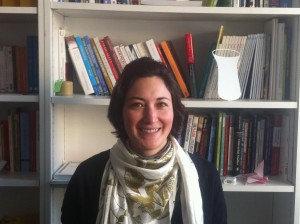University of Geneva
 Founded in 1559 by Jean Calvin, the University of Geneva (UNIGE)
is dedicated to thinking, teaching, dialogue and research. With 16’000
students of more than 140 different nationalities, it is Switzerland’s
second largest university.
Founded in 1559 by Jean Calvin, the University of Geneva (UNIGE)
is dedicated to thinking, teaching, dialogue and research. With 16’000
students of more than 140 different nationalities, it is Switzerland’s
second largest university.
UNIGE offers more than 280 types of degrees and more than 250 Continuing Education programmes covering an extremely wide variety of fields: exact sciences, medicine and humanities. Its domains of excellence in research include life sciences (molecular biology, bio-informatics), physics of elementary particles, and astrophysics. UNIGE is also host and co-host to six National Centres of Competence in Research: Frontiers in Genetics, Materials with Novel Electronic Properties (MaNEP), Chemical Biology, Affective Sciences, Synaptic Bases of Mental Diseases and LIVES-Overcoming vulnerabilities in a life course perspective.
Just like the city of Geneva itself, the university enjoys a strong international reputation, both for the quality of its research (it ranks among the top institutions among the League of European Research Universities) and the excellence of its education. This acclaim has been won in part due to its strong ties to many national and international Geneva-based organizations, such as the World Health Organization, the International Telecommunications Union, the International Committee of the Red Cross, and the European Organization for Nuclear Research.
For more information about UNIGE please visit: http://www.unige.ch/
Members of the Swiss team
 Marco Giugni (marco.giugni@unige.ch) is the principal investigator of the Swiss team and the Coordinator of the LIVEWHAT project. He is a Professor at the Department of Political Science and International Relations and Director of the Institute of Citizenship Studies (InCite) at
the University of Geneva, Switzerland. His research interests focus on
social movements and protest, but he has also published widely on social
exclusion and the participation of disadvantaged and discriminated
groups such as the unemployed and immigrants. He has participated and
coordinated numerous research projects, funded by the Swiss national
funding agency and the European Commission, including the Swiss case of
the Caught in the Act of Protest research project, see:
www.protestsurvey.eu. Publications include 9 books, 10 edited
collections, and more than 100 journal articles and book chapters. His
books were published, among others, by Ashgate, Palgrave, Rowman &
Littlefield, and the University of Minnesota Press. In addition, he has
edited or co-edited a number of special issues for scholarly journals
such as Swiss Journal of Sociology (editor, 2004), Mobilization (editor,
2008), Revue Suisse de Travail Social (editor, 2011), Ethnicities
(co-editor, 2013), International Journal of Social Welfare (co-editor,
2013). He is also European Editor of Mobilization, a leading
international journal focusing on social movements and protest and as
such has a wealth of practical experience in publishing and editing.
Marco Giugni (marco.giugni@unige.ch) is the principal investigator of the Swiss team and the Coordinator of the LIVEWHAT project. He is a Professor at the Department of Political Science and International Relations and Director of the Institute of Citizenship Studies (InCite) at
the University of Geneva, Switzerland. His research interests focus on
social movements and protest, but he has also published widely on social
exclusion and the participation of disadvantaged and discriminated
groups such as the unemployed and immigrants. He has participated and
coordinated numerous research projects, funded by the Swiss national
funding agency and the European Commission, including the Swiss case of
the Caught in the Act of Protest research project, see:
www.protestsurvey.eu. Publications include 9 books, 10 edited
collections, and more than 100 journal articles and book chapters. His
books were published, among others, by Ashgate, Palgrave, Rowman &
Littlefield, and the University of Minnesota Press. In addition, he has
edited or co-edited a number of special issues for scholarly journals
such as Swiss Journal of Sociology (editor, 2004), Mobilization (editor,
2008), Revue Suisse de Travail Social (editor, 2011), Ethnicities
(co-editor, 2013), International Journal of Social Welfare (co-editor,
2013). He is also European Editor of Mobilization, a leading
international journal focusing on social movements and protest and as
such has a wealth of practical experience in publishing and editing.
 Jasmine Lorenzini
holds a Ph.D. in political science from the University of Geneva. In
her doctoral research, “Unemployment and Citizenship: Social and
Political Participation of Unemployed Youth in Geneva”, she addresses
the consequences of long-term unemployment for youth political
participation. Jasmine Lorenzini previously worked on YOUNEX – a
European research project on “Youth, Unemployment, and Exclusion”
financed by the European Commission under the seventh framework program.
Jasmine Lorenzini was visiting scholar at the Center for the Study of
Democratic Citizenship at McGill University in Montréal and in the
research unit “Skill Formation and Labor Market” at the WZB in Berlin.
In 2013, she obtained her Ph.D. and worked as teaching assistant at the
department of political science and international relations at the
University of Geneva.
Jasmine Lorenzini
holds a Ph.D. in political science from the University of Geneva. In
her doctoral research, “Unemployment and Citizenship: Social and
Political Participation of Unemployed Youth in Geneva”, she addresses
the consequences of long-term unemployment for youth political
participation. Jasmine Lorenzini previously worked on YOUNEX – a
European research project on “Youth, Unemployment, and Exclusion”
financed by the European Commission under the seventh framework program.
Jasmine Lorenzini was visiting scholar at the Center for the Study of
Democratic Citizenship at McGill University in Montréal and in the
research unit “Skill Formation and Labor Market” at the WZB in Berlin.
In 2013, she obtained her Ph.D. and worked as teaching assistant at the
department of political science and international relations at the
University of Geneva.
 Maria M. Mexi
is senior research fellow at the Institute of Citizenship Studies
(InCite) at the University of Geneva. She has completed a postdoc at
the University of Geneva and she holds a Doctorate (DPhil) in Politics
and International Relations and an MPhil in Political Theory from the
University of Oxford, an MSc in European Social Policy with Distinction
from the London School of Economics, and a BA in History with High
Distinction from the American College of Greece. Dr Mexi has conducted
research in the areas of European social policy, youth mobilization and
solidarity forms in times of crisis, and she has developed and managed
numerous research and technical assistance (including, capacity
building) projects in collaboration with universities, international
organizations, consulting agencies and NGOs. She also works as a
consultant for international organizations in the area of social policy,
while her current research interests fall within the areas of youth
political participation, social dialogue and the future of work.
Maria M. Mexi
is senior research fellow at the Institute of Citizenship Studies
(InCite) at the University of Geneva. She has completed a postdoc at
the University of Geneva and she holds a Doctorate (DPhil) in Politics
and International Relations and an MPhil in Political Theory from the
University of Oxford, an MSc in European Social Policy with Distinction
from the London School of Economics, and a BA in History with High
Distinction from the American College of Greece. Dr Mexi has conducted
research in the areas of European social policy, youth mobilization and
solidarity forms in times of crisis, and she has developed and managed
numerous research and technical assistance (including, capacity
building) projects in collaboration with universities, international
organizations, consulting agencies and NGOs. She also works as a
consultant for international organizations in the area of social policy,
while her current research interests fall within the areas of youth
political participation, social dialogue and the future of work.
